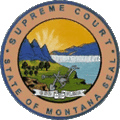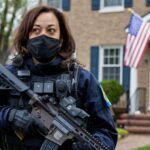The renowned firearms expert Massad Ayoob has compiled a comprehensive five-point set of actions to be taken post-defensive shooting event. He provides detailed instructions on what to do in the immediate aftermath.
If Thomas Jefferson had presented me with his final draft of the Declaration of Independence, I’d probably have had a few edits. In that spirit, and with the disclaimer that I am not a lawyer nor do I play one on TV (nor did I stay at a Holiday Inn last night), let me add the following to Massad’s excellent work:
If for some reason you can’t be the one to call 911 (perhaps you’ve been seriously injured as well), instruct a bystander on how to make the call. They might already be in the process of calling, so give them the script they need to use. You want to frame the event correctly: “Please call 911 and tell them a good guy was forced to defend himself/herself and we need medical help ASAP.”
You’re a USCCA member, right? You have them on speed dial, right? Or you’ve already discussed a situation like this with your lawyer and have him/her on speed dial, right? Make that call. You want someone to come to get you out of jail if the police decide to take you in until everything is figured out.
After that call, dial 911 again and ask when help will arrive. That’s not the point of the call. The dispatch center is recording everything and this will be invaluable evidence should it be needed. Don’t hang up; just put the phone in your pocket. This is also good advice if you’re dealing with a home invasion — keep 911 on the line so that they record everything.
When you see the police arriving, holster your weapon. As Massad said, if you’re still holding a gun, you’ll look like the perpetrator to the police. Don’t be the person waving around a gun. Follow their instructions. Repeat their instructions and say what you are doing as you do it. Remember, this is being recorded. “Put your hands behind your head!” “I’m putting my hands behind my head…” You don’t want to make a horrible day even worse by getting shot by the police.
Massad is right about what to establish with the police once they arrive. Do all of that, but don’t get engaged in a long conversation. Don’t “explain.” Don’t “show them what happened.” In general, talking to the police is a bad idea and you’re not going to have all of your faculties. Your ears will probably still be ringing. One technique I learned years ago is once you’ve had the initial conversation, tell them you’d be glad to answer all of their questions, but you need a little time to compose yourself. Go off somewhere and sit down. Then make a phone call. It doesn’t matter who you call. Then come back and tell them you’d be glad to talk to them, but your lawyer told you not to say anything more until he or she is present.
If you’re ever forced to pull the trigger in a defensive use, it’s going to be one of the worst things that will ever happen to you. The psychological impact of having to take a life or seriously injure someone is going to have an immediate and dramatic effect. Don’t make it easy for a prosecutor who wants to make an example out of you for his or her own political advancement.





Leave a Reply